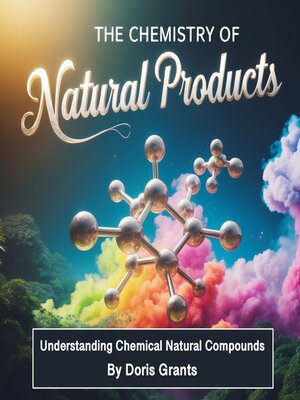The Chemistry of Natural Products
audiobook (Unabridged) ∣ Understanding Chemical Natural Compounds
By Doris Grants

Sign up to save your library
With an OverDrive account, you can save your favorite libraries for at-a-glance information about availability. Find out more about OverDrive accounts.
Find this title in Libby, the library reading app by OverDrive.



Search for a digital library with this title
Title found at these libraries:
| Library Name | Distance |
|---|---|
| Loading... |
This audiobook is narrated by a digital voice.
Natural products chemistry is a specialized field within organic chemistry that focuses on the study of chemical compounds produced by living organisms. These compounds, often complex in structure, are biosynthesized by plants, animals, fungi, and microorganisms. Natural products have played a critical role in the advancement of science, especially in the development of modern pharmaceuticals. From the discovery of penicillin to the isolation of quinine, many life-saving drugs have originated from nature's own chemical arsenal.
The classification of natural products is typically based on their biosynthetic origin and structural features. The major categories include alkaloids, terpenes, flavonoids, glycosides, steroids, and peptides, among others. Each class possesses distinct biological activities and chemical properties that contribute to their importance in both natural ecosystems and human use. For example, alkaloids often serve as plant defense compounds and have been adapted into painkillers and anesthetics in medicine.
The historical development of natural products chemistry dates back to the early days of pharmacognosy and traditional medicine. Ancient civilizations used plant extracts and animal-derived substances to treat various ailments, often without knowledge of the active ingredients involved. With the rise of modern chemistry in the 19th and 20th centuries, scientists began isolating and characterizing the specific molecules responsible for these therapeutic effects. The identification of morphine from opium and salicin from willow bark are landmark achievements that laid the foundation for this discipline.







